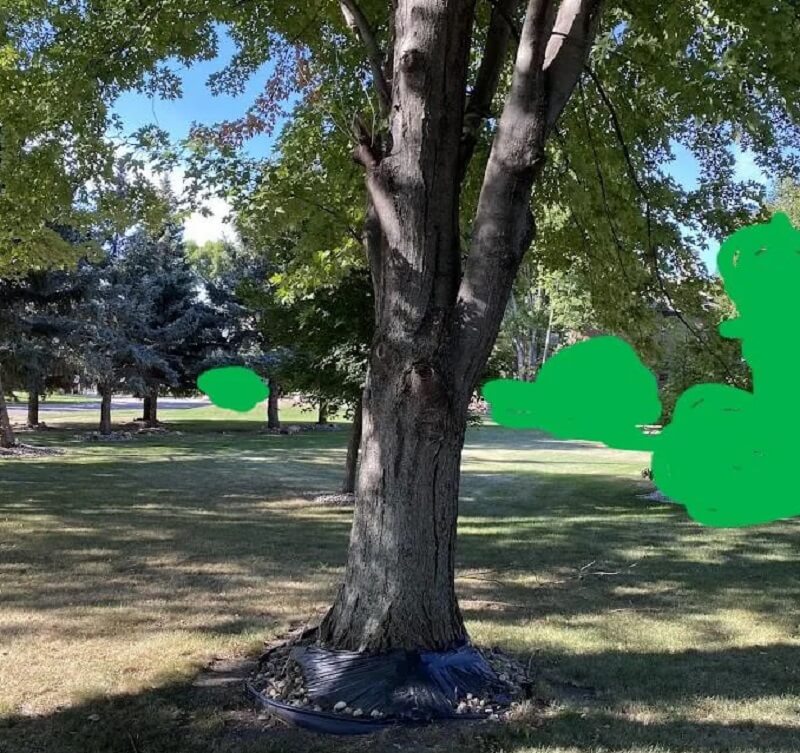From afar, it looks like a regular tree. But if you look more closely, you can notice the pile of mulch, rocks, and plastics piled high at its base — and if you're familiar with the concept of "mulch volcanoes," you'll immediately recognize that this tree is in grave danger.
One concerned observer posted a photo of the phenomenon, which they witnessed at a local park, in the subreddit r/arborists.

"Why is this so common?" they lamented. "The plastic edging right up against the base of the tree, the plastic groundcover, and the handful of rocks tossed on top... I see this kind of stuff all over my neighborhood. It looks like s***. It's unhealthy for the tree."
Furthermore, they pointed out, "this takes more effort and money than just leaving it alone and doing nothing with the tree. That's the baffling part."
Commenters were similarly frustrated yet unsurprised, given that they had observed much of the same behavior.
One commenter observed, "One thing I've noticed since moving into town is how many people copy the yard maintenance habits of their neighbors. …[I] see lots of broccoli-pruned trees (that didn't need trimming) and mulch volcanoes. People tend to follow trends. Oh well."
At least, they mentioned, "In some cases this is nice because I'm seeing more native-plant, pollinator-friendly yards."
While people generally install mulch in an attempt to smother weeds, the material has generally been found ineffective, as it tends to limit the transmission of beneficial nutrients, airflow, and water to the plants it's supposed to protect.
In fact, large mulch volcanoes like this one can kill even a healthy, mature tree, which will then cost a great deal to remove and replace. And aside from the expense and the labor involved, damaging native plants is incredibly harmful to the local ecosystem, hurting the survival rates of local fauna and pollinators.
🗣️ What's the hardest thing about taking care of your yard?
🔘 Mowing the lawn 🏡
🔘 Controlling weeds 🌿
🔘 Keeping pests at bay 🐿️
🔘 I don't have a yard 🤷
🗳️ Click your choice to see results and speak your mind
Instead, gardeners — including city gardeners who work at public parks — are better off using natural methods, like hand pulling or non-toxic herbicides, to monitor their weed growth and ensure that trees like this one can thrive.
Join our free newsletter for easy tips to save more and waste less, and don't miss this cool list of easy ways to help yourself while helping the planet.









